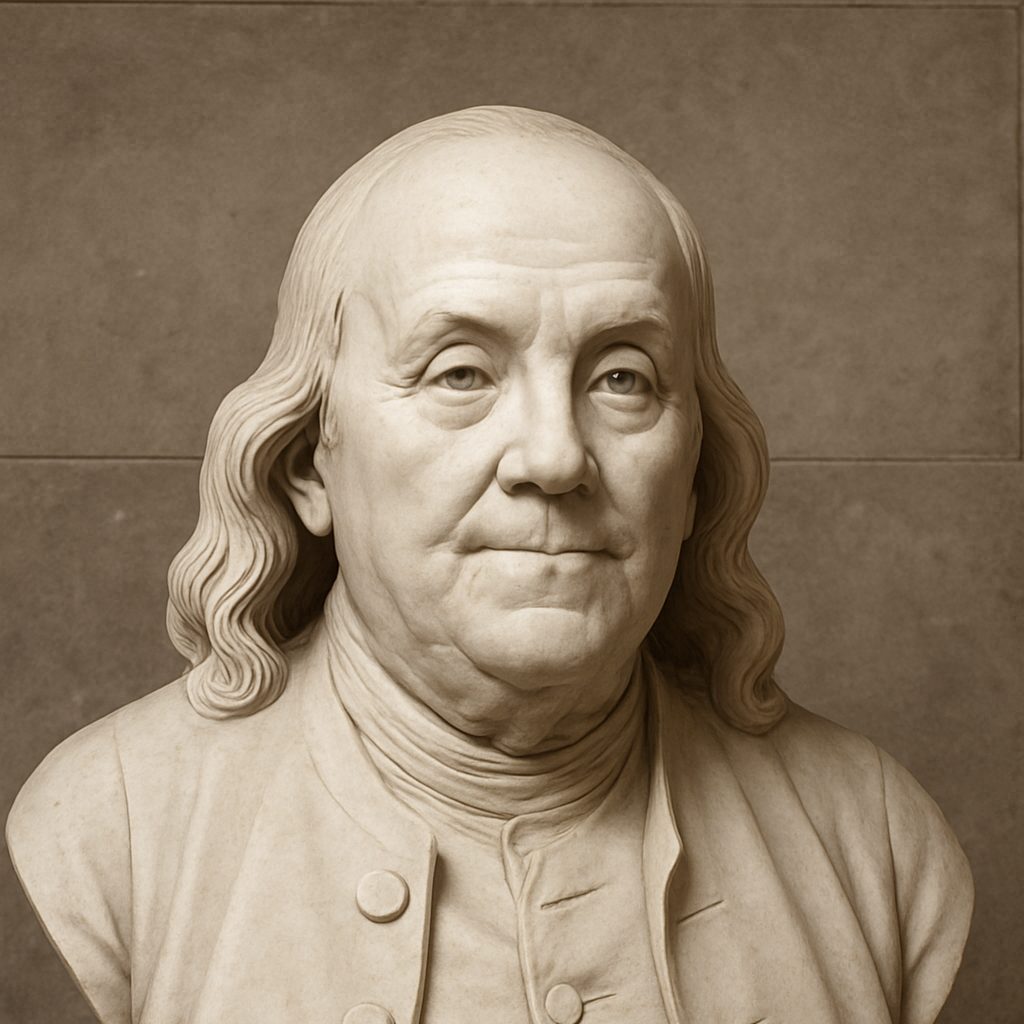Benjamin Franklin, born on January 17, 1706, in Boston, Massachusetts, stands as a stellar example of a Renaissance Man, a person whose expertise spans a significant number of different subject areas and who draws on complex bodies of knowledge to solve specific problems. Franklin’s life was a testament to the power of curiosity and the pursuit of knowledge, as he excelled in numerous fields, leaving an indelible mark on the world.
As a young man, Franklin’s inquisitive nature led him to become a self-taught polymath, deeply interested in the sciences, literature, and politics. His career began in the world of print, where he became a successful newspaper editor and printer in Philadelphia. His publication, “Poor Richard’s Almanack,” was a popular annual pamphlet that offered a mix of seasonal weather forecasts, practical household hints, puzzles, and aphorisms, reflecting his keen wit and wisdom.
Franklin’s scientific endeavors were groundbreaking. He is perhaps best known for his experiments with electricity, particularly the famous kite experiment, which demonstrated the electrical nature of lightning. This work laid the foundation for the understanding of electricity and earned him recognition from the Royal Society of London. His invention of the lightning rod was a practical application of his scientific discoveries that saved countless structures from the ravages of lightning strikes.
In addition to his scientific achievements, Franklin was an inventor whose creations included the bifocal glasses, the Franklin stove, and the glass armonica, a musical instrument that gained popularity in the 18th century. His inventions were driven by his desire to improve daily life and showcased his ability to blend creativity with practicality.
Franklin’s prowess extended into the realm of politics and diplomacy. As one of the Founding Fathers of the United States, he played a crucial role in the American Revolution. He was instrumental in securing French support for the American cause, an alliance that proved vital for victory. He also helped draft the Declaration of Independence and the U.S. Constitution, ensuring his legacy as a key architect of American democracy.
Moreover, Franklin was a fervent advocate for education and civic improvement. He founded the University of Pennsylvania and the American Philosophical Society, fostering intellectual and cultural growth in the fledgling nation. His commitment to public service was further evidenced by his establishment of the first public lending library in America and his role in developing the postal system, which enhanced communication across the colonies.
In essence, Benjamin Franklin epitomized the ideal of the Renaissance Man through his relentless pursuit of knowledge and his ability to apply his diverse talents to effect lasting change. His contributions to science, politics, and society continue to resonate, illustrating how excellence in multiple fields can transform the world. Franklin’s life remains a beacon of innovation and enlightenment, inspiring future generations to explore and excel in varied disciplines.

